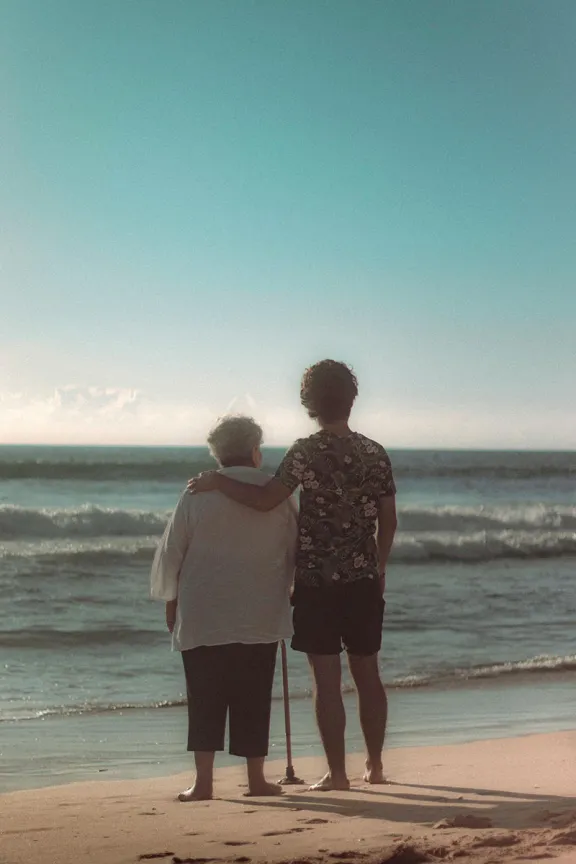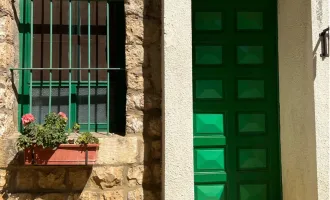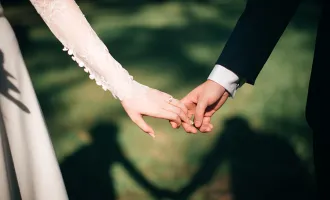
We romanticize our mothers and grandmothers, but they do too
People say that because we were born on the other side, in the north, we are neither from here nor from there. Our colonizing Spanish is rusty and we are “gringas” like bidi bidi bom bom, and what can we say about our Indigenous languages.
However, speaking Spanish and English makes us from here and from there. When our Latina mothers or grandmothers don’t speak English, we are there at their service as interpreters and we do it with joy.
Our mothers and grandmothers have suffered in their walks of life and carry the mourning of colonial wounds. Inside them, exist wounded girls willing to face their darkness.
What we are not taught and have forgotten is that these processes are difficult and require our daughters and granddaughters to express “mom or grandma, what you did hurt me a lot and that does not make you are a bad mother, grandmother, a liar, a bad woman.”
On the contrary, you are human, in your duality of darkness and light, and by telling you my truth, it is a way of resisting and transcending internalized gender violence
Expressing our realities also humanizes us because although we are younger and perhaps have more privileges than them, we need unconditional love where we can have a disagreement in values or actions that lead us to repair ruptures with the wisdom of our ancestors.
Grandmothers and mothers sometimes tell us “I have already lived my life, I am like this, and this is how I will be” without knowing that in that expression there is psychological violence because it is to say “either you accept me or you leave and that makes you a bad daughter and it does not make me a bad mother or grandmother”
Let’s stop romanticizing ourselves and remember the cosmovision and ways of healing of our ancestors that give rise to the coexistence of multiple realities, that hurting or being hurt does not make us less human, that we are complex, that we walk with light, shadows and darkness.
Although we were hurt by what they did to us, we love, respect, and admire them. We are in the liberation struggles together and without romanticizing each other.
Romantizamos a nuestras mamas y abuelas, pero ellas también nos romantizan
Dicen que por haber nacido del otro lado, en el norte no somos ni de aquí ni de allá
Nuestro español colonizador es mocho y somos gringas como bidi bidi bom bom, y que se diga de nuestras lenguas originarias.
Sin embargo, el hablar el español e Inglés nos hace de aquí y de ella. cuando nuestras mamas o abuelitas no entienden, allí estamos al servicio de ellas y lo hacemos con gusto.
Nuestras mamas y abuelas han sufrido en sus andares y cargan el duelo de las heridas coloniales. Dentro de ellas, se encuentran niñas heridas y dispuestas a enfrentar sus oscuridades.
Lo que no nos enseñan y hemos olvidado es que esos procesos son difíciles y requieren que nuestras hijas y nietas expresen “mama o abuela, eso que hiciste me dolió mucho y eso no significa que eres una mala madre, abuela, una mentirosa, una mala mujer.”
Al contrario eres humana, en tu dualidad de la oscuridad y luz, y al decirte mi verdad, es una manera de resistir y trascender las micro violencias de género
Expresarles nuestras realidades nos humaniza también porque aunque seamos más jóvenes y tal vez tengamos más privilegios que ellas, necesitamos un amor incondicional donde podamos tener un desacuerdo en valores o acciones cuales conllevan a repararnos con la sabiduría de nuestras ancestras.
Las abuelas y madres a veces nos dicen “yo ya viví mi vida, soy así, y así sera” sin saber que en esa expresión hay violencia psicológica porque es decir o me aceptas o te vas y eso te hace una mala hija y a mí no me hace una mala madre o abuela
Dejemos de romantizarnos y recordemos las cosmoemciones de nuestras ancestras que gestan la coexistencia de múltiples realidades, que herir o ser herida no nos hace menos humanas, que somos complejas, que caminamos con luz, sombras y oscuridades.
Aunque nos dolió lo que nos hicieron, las queremos, respetamos, y admiramos. Estamos en la lucha junta y sin romantizarnos.



